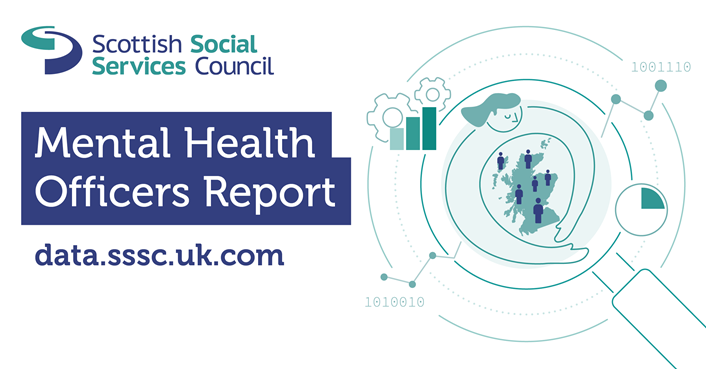The number of local authorities reporting a shortfall in the MHO workforce has increased to 26, from 23 the previous year. Local authorities reporting a shortfall estimated an extra 2,840 MHO hours were required each week, which is up 49% on the previous year. Most local authorities saw either no rise in shortfall or shortfall remaining the same, however 14 areas did see rises. One large local authority, Glasgow, now accounts for 25% of the total shortfall.
MHOs are specially trained social workers who carry out statutory duties in relation to mental health legislation. The reported shortfalls in staffing could result in delays to people accessing services, appropriate treatment and care and hospital discharges.
The Scottish Government and COSLA launched the National Workforce Strategy for Health and Social Care in March 2022. It highlighted that the shortfall in MHO capacity has been growing in recent years. The Scottish Government and COSLA have responded by introducing the Mental Health Officer Capacity Building (Training) Grant Scheme to help local authorities train additional MHOs. Our report shows further growth in the shortfall.
Maree Allison, SSSC Acting Chief Executive said: ‘This report shows local authorities are facing significant challenges in providing the number of MHO hours needed to meet demand.
‘While some local authorities report no shortfall, others are well short of the provision required, which amounts to a shortfall of 109.2 hours each week when taken as an average across the 26 local authorities reporting a shortfall.
‘However, it also showed that although the number of MHO posts and the number of individuals working in them both dropped slightly in 2021, there was a very slight rise in the number of MHO hours worked when compared to 2020.
‘It’s important that local authorities, Scottish Government and others consider workforce planning, including succession planning and making sure enough people are training as MHOs, to meet future demand and our workforce data reports help them do that.’
Key points from this year’s MHO report
- There were 694 filled MHO posts in 2021, which is 10 fewer than the 704 in 2020.
- The number of individuals working as an MHO fell from 677 in 2020 to 660 in 2021.
- The overall hours estimated to be spent on MHO duties each week in 2021 saw a very slight rise from 2020.
- A small fall was seen in the estimated average time spent by MHOs in mental health teams on MHO work whereas an increase was seen in the estimated average time spent by MHOs from non-mental health teams.
- Filled exclusive MHO posts rose by one (less than half a percent), the filled cover MHO posts rose by 13 (24.5%) and there was a fall of 24 non-exclusive posts (5.7%) (see note*). The overall fall in MHO posts was 10 (1.4%).
- Between December 2020 and December 2021, 95 staff left 95 MHO posts, this is one more than the high of 94 between December 2018 and December 2019.
- There was an increase in the number of authorities reporting an estimated shortfall in MHOs along with an increase in the total number of weekly additional hours estimated to be required.
- There is a long-term trend which has been seen since records began in 2005 of increasing proportions of MHOs located in mental health teams and reducing proportions in non-mental health teams. Almost two-thirds of MHOs are now based in MHTs compared to roughly two-fifths in 2005.
Our role supporting MHOs
We approve and quality assure the three university MHO programmes in Scotland, which includes feedback from people who use mental health services to inform improvements in the delivery of MHO education and practice.
We also work in partnership with the national MHO forum, Social Work Scotland and the Scottish Association of Social Workers to develop resources to support practice including learning in relation to new mental health legislation and the annual MHO study day.
We have supported the Office of the Chief Social Work Adviser at Scottish Government with its distribution of funding to local authorities to train additional MHOs in each of the last three years.
